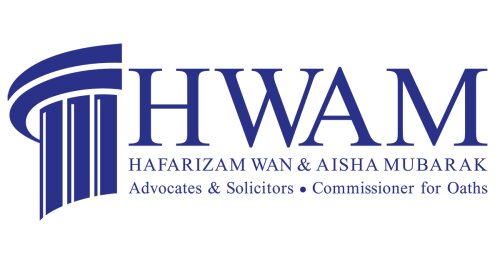Best FDA Law Lawyers in Putrajaya
Share your needs with us, get contacted by law firms.
Free. Takes 2 min.
List of the best lawyers in Putrajaya, Malaysia
About FDA Law in Putrajaya, Malaysia
FDA Law in Putrajaya, Malaysia refers to the framework of regulations and legal standards that govern food, drugs, cosmetics, and medical devices. In Malaysia, the Ministry of Health (MOH) is the principal authority in overseeing the safety, quality, and labeling of products that reach consumers. The Food and Pharmaceutical regulatory environment is primarily overseen by the National Pharmaceutical Regulatory Agency (NPRA) and the Food Safety and Quality Division (FSQD), both of which are headquartered in Putrajaya. Compliance with these regulations is crucial for manufacturers, distributors, importers, and retailers operating in Malaysia's food and drug sector.
Why You May Need a Lawyer
There are various situations where legal guidance is essential in FDA Law. If you are starting a business in food manufacturing, importing medical devices, or want to market pharmaceutical products in Malaysia, you must comply with strict local regulations. A lawyer helps ensure your product registration, labeling, and advertising meet the stipulated legal requirements. Legal assistance may also be needed when facing enforcement actions, inspections, or if your products are seized or recalled. Additionally, navigating clinical trials, patent issues, or dealings with government agencies often require proficient legal counsel to protect your interests and reputation.
Local Laws Overview
FDA Law in Putrajaya and throughout Malaysia is governed by several key statutes and subsidiary regulations. Among the most significant are the Food Act 1983, the Control of Drugs and Cosmetics Regulations 1984, the Sale of Drugs Act 1952, and the Medical Device Act 2012. The Food Act broadly governs the import, preparation, sale, and labeling of food. The Control of Drugs and Cosmetics Regulations set forth requirements for the registration, labeling, and advertising of drugs and cosmetics. The Medical Device Act regulates the registration, marketing, and post-market surveillance of medical devices. Violations of these laws can lead to product recalls, fines, business closure, or criminal prosecution.
Frequently Asked Questions
What constitutes a drug, food, or medical device under Malaysian law?
Malaysian law provides specific definitions for drugs, foods, and medical devices, typically aligned with international standards. A drug is any substance used for diagnosis, cure, mitigation, treatment, or prevention of disease. A medical device covers instruments, apparatus, or articles intended for medical purposes. Foods include anything consumed for nourishment, excluding drugs.
Do I need to register my product with the authorities?
Yes. Most food products, drugs, cosmetics, and medical devices require registration with the NPRA or the FSQD before they can be marketed, imported, or sold in Malaysia.
Can I advertise my food or drug product freely?
No. Advertisements for food, drugs, and related products are strictly regulated. False claims, misleading information, or unapproved content can result in enforcement actions, including fines and product recall.
What is the penalty for selling unregistered or counterfeit products?
Penalties can include hefty fines, imprisonment, product seizure, or business closure. Offenses under these laws are considered serious and often have significant legal implications.
Who conducts inspections and enforcement?
The Ministry of Health, including its FSQD and NPRA divisions, regularly conducts inspections and takes enforcement actions against non-compliant businesses.
Are there specific import restrictions for foreign products?
Yes. Importing food or drug products involves meeting certification, labeling, and safety standards. Unauthorized or non-compliant imports are subject to seizure and destruction.
How does the product recall process work?
If a product is found to be unsafe or non-compliant, the regulatory authorities may require its removal from the market. Companies must cooperate and provide information for public safety.
What legal protections exist for consumers?
Consumers are protected by law through strict regulatory enforcement, mandatory product registration, labeling requirements, and mechanisms to report non-compliant products or adverse events.
How do I resolve disputes with regulators or customers?
Disputes may be resolved through internal reviews, negotiations, formal appeals to regulatory bodies, or legal proceedings in Malaysian courts. An experienced FDA Law lawyer can guide you.
How can a lawyer help my business comply with FDA Law?
A lawyer advises on proper product registration, labeling compliance, risk assessment, and can represent you in negotiations or legal disputes with regulators, ensuring your business operates lawfully and efficiently.
Additional Resources
- Ministry of Health Malaysia (MOH): Principal regulatory authority overseeing food and drug safety. - National Pharmaceutical Regulatory Agency (NPRA): Responsible for drug and medical device registration. - Food Safety and Quality Division (FSQD): Supervises food safety, import/export, and labeling. - Malaysian Organisation of Pharmaceutical Industries (MOPI): Provides industry insights and compliance resources. - Malaysian Bar Council: Directory of qualified legal professionals specializing in FDA Law. - Consumer Association of Malaysia: For consumer protection and advocacy.
Next Steps
If you believe you need legal assistance within the FDA Law sector in Putrajaya, Malaysia, start by gathering information about your business activities or the specific issue encountered. Document all interactions with regulatory agencies and retain any correspondence or inspection reports. Next, consult a lawyer who specializes in FDA Law by seeking referrals or reaching out to the Malaysian Bar Council for a professional match. Prepare your questions and relevant documents before the consultation. Timely expert advice can help you navigate legal complexities, ensure compliance, minimize business disruptions, and protect your professional and personal interests.
Lawzana helps you find the best lawyers and law firms in Putrajaya through a curated and pre-screened list of qualified legal professionals. Our platform offers rankings and detailed profiles of attorneys and law firms, allowing you to compare based on practice areas, including FDA Law, experience, and client feedback.
Each profile includes a description of the firm's areas of practice, client reviews, team members and partners, year of establishment, spoken languages, office locations, contact information, social media presence, and any published articles or resources. Most firms on our platform speak English and are experienced in both local and international legal matters.
Get a quote from top-rated law firms in Putrajaya, Malaysia — quickly, securely, and without unnecessary hassle.
Disclaimer:
The information provided on this page is for general informational purposes only and does not constitute legal advice. While we strive to ensure the accuracy and relevance of the content, legal information may change over time, and interpretations of the law can vary. You should always consult with a qualified legal professional for advice specific to your situation.
We disclaim all liability for actions taken or not taken based on the content of this page. If you believe any information is incorrect or outdated, please contact us, and we will review and update it where appropriate.










